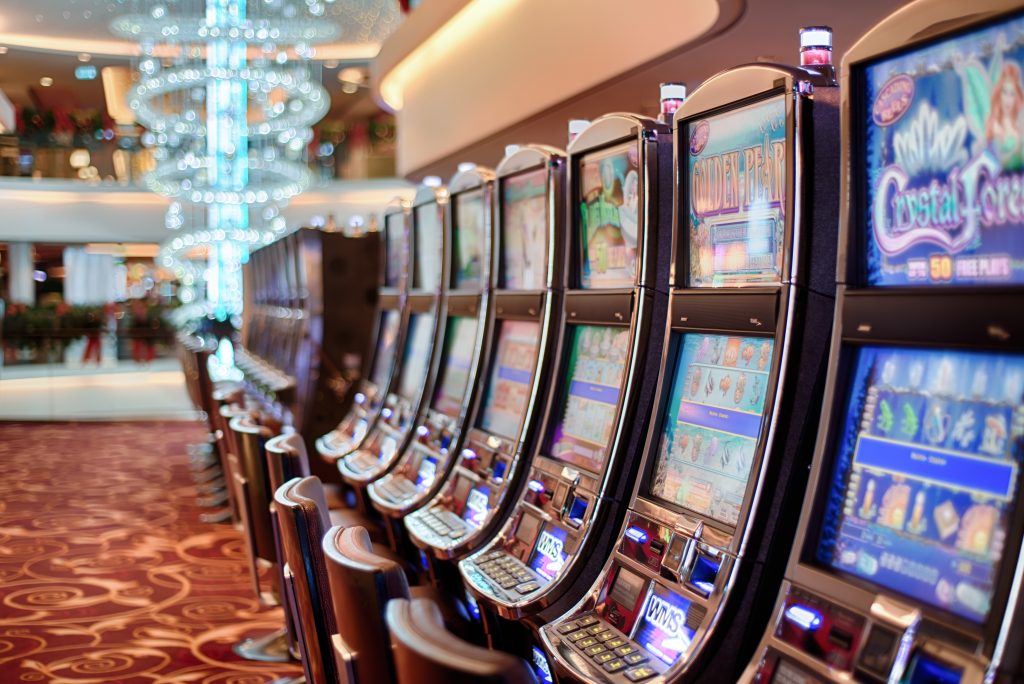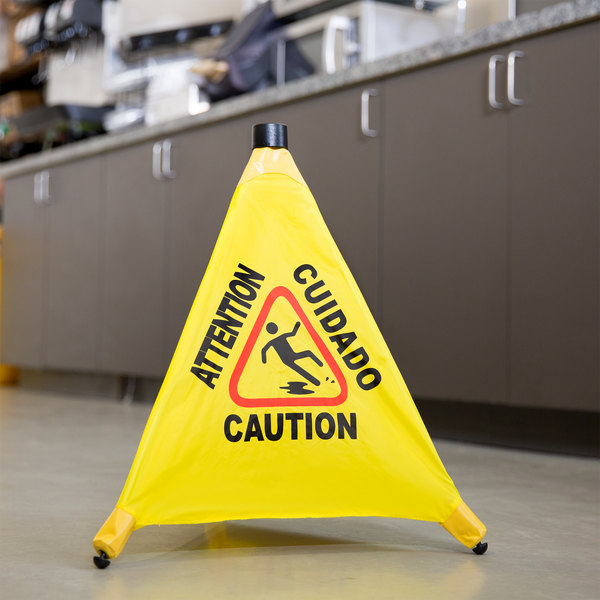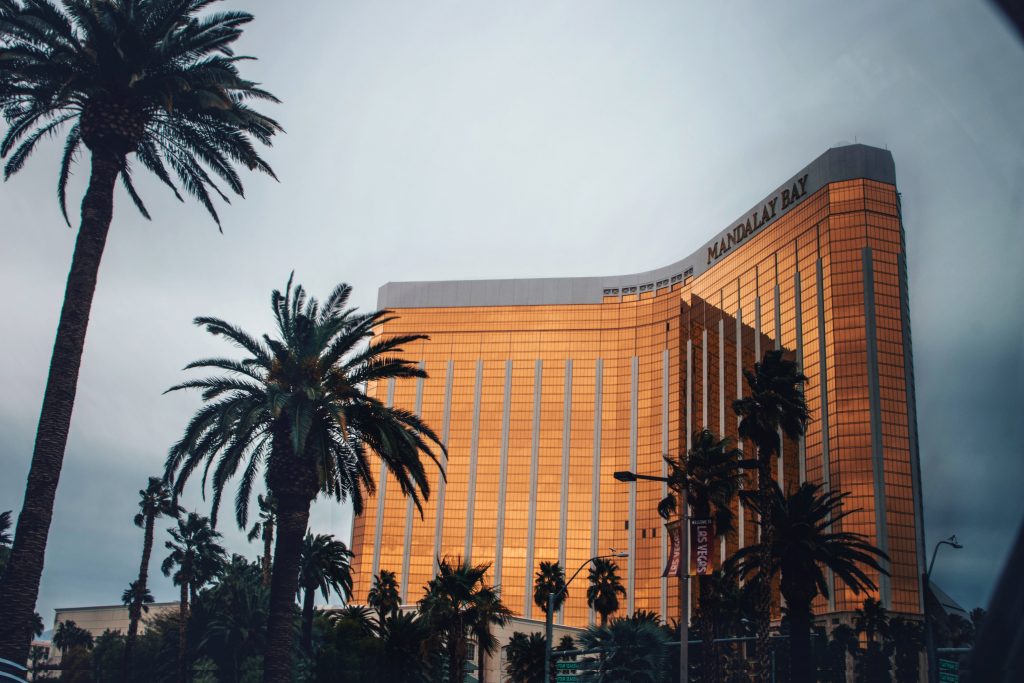 Providing preferential seating to disabled customers is a great service most businesses provide. This also means that the wheelchairs, walkers, and other items the disabled customers must be stored in areas that provide a safe walking environment for other customers. The controversy surrounding where it is proper or improper to put these items was illustrated in a case where a Baton Rouge Casino was sued by a woman who tripped over the walker of a disabled customer. With the help of an excellent attorney, the Casino was able to prove it seated a disabled gentleman properly when the woman sued the casino after her fall.
Providing preferential seating to disabled customers is a great service most businesses provide. This also means that the wheelchairs, walkers, and other items the disabled customers must be stored in areas that provide a safe walking environment for other customers. The controversy surrounding where it is proper or improper to put these items was illustrated in a case where a Baton Rouge Casino was sued by a woman who tripped over the walker of a disabled customer. With the help of an excellent attorney, the Casino was able to prove it seated a disabled gentleman properly when the woman sued the casino after her fall.
73-year-old Elvera Willig was eating dinner a Baton Rouge Casino, the L’Auberge Casino & Hotel (“the Casino”) on New Year’s Day 2014. While making her 4th trip back from the buffet, she tripped and fell over an unidentified man’s walker that was slightly sticking into the pathway. As a result of the fall, Ms. Willig fractured her hip.
It was later determined that the unidentified man was directed to the seat by an employee of the Casino. Ms. Willig brought a lawsuit against the Casino. In the lawsuit, she claimed that the Casino was negligent and failed to protect guests; the Casino was negligent and sat the patron inappropriately close to the walkway; and the Casino negligently sat the unidentified man and his walker in a place where other customers could trip on the walker.
 Louisiana Personal Injury Lawyer Blog
Louisiana Personal Injury Lawyer Blog


 We have a reasonable expectation that public shopping areas will be free from dangerous hazards. Most stores even have policies regarding safety procedures. However, these safety procedures are not allows followed and injuries often result. Unfortunately, this is exactly what happened to Michelle Gauthier while shopping at a Dollar Tree Store.
We have a reasonable expectation that public shopping areas will be free from dangerous hazards. Most stores even have policies regarding safety procedures. However, these safety procedures are not allows followed and injuries often result. Unfortunately, this is exactly what happened to Michelle Gauthier while shopping at a Dollar Tree Store. When in a restaurant, one expects the kitchen and the dining room to be clean, and it is
When in a restaurant, one expects the kitchen and the dining room to be clean, and it is  When a customer is injured in a slip and fall on a wet supermarket floor there are some situations where the supermarket is held responsible. Other times, there are situations where the supermarket is not at fault and the accident is chalked up to bad luck. Where that line is drawn is determined by what the supermarket knew or should have known about the dangerous condition. When is a slip and fall the Supermarkets fault?
When a customer is injured in a slip and fall on a wet supermarket floor there are some situations where the supermarket is held responsible. Other times, there are situations where the supermarket is not at fault and the accident is chalked up to bad luck. Where that line is drawn is determined by what the supermarket knew or should have known about the dangerous condition. When is a slip and fall the Supermarkets fault? Accidents happen – both on the job and when going about regular life.
Accidents happen – both on the job and when going about regular life. Sometimes accidents at work happen. But what happens when an accident could have been prevented by an employee? It is a common question to wonder whether an employer is still liable for the actions of an employee, especially in cases where a defect may be open and obvious. A Louisiana delivery driver confronted this very situation after he was injured on a loading dock.
Sometimes accidents at work happen. But what happens when an accident could have been prevented by an employee? It is a common question to wonder whether an employer is still liable for the actions of an employee, especially in cases where a defect may be open and obvious. A Louisiana delivery driver confronted this very situation after he was injured on a loading dock. Every business which opens its doors to the public owes a duty of care to their patrons, a duty to make sure the patron is safe and free from harm. Often, this is as simple as keeping walkways clear and ensuring spills and other hazards are cleaned up in a timely fashion. But what most businesses have never contemplated is a possibility that the duty of care would be owed to something other than a real, live, breathing person. Could the persons to which a merchant owes a duty of care include “juridical” personhood, such as a corporation or a limited liability company (L.L.C.)? In this instance, the answer was, “no.”
Every business which opens its doors to the public owes a duty of care to their patrons, a duty to make sure the patron is safe and free from harm. Often, this is as simple as keeping walkways clear and ensuring spills and other hazards are cleaned up in a timely fashion. But what most businesses have never contemplated is a possibility that the duty of care would be owed to something other than a real, live, breathing person. Could the persons to which a merchant owes a duty of care include “juridical” personhood, such as a corporation or a limited liability company (L.L.C.)? In this instance, the answer was, “no.”  Ms. Sayre was a guest at the L’Auberge Casino Resort in Lake Charles when she tripped and fell while walking in front of the hotel restaurant. Based on the video footage of the accident, there were witnesses to the slip and fall; however, the hotel failed to document anything or take statements from any of the witnesses. Ms. Sayre reported a sticky substance on the floor, and subsequently suffered injuries to her knee, hand, neck, and abdomen. Later, Ms. Sayre learned she also had three fractured ribs and a full rotator cuff tear that would require surgery. So, what happens if you slip and fall in a restaurant?
Ms. Sayre was a guest at the L’Auberge Casino Resort in Lake Charles when she tripped and fell while walking in front of the hotel restaurant. Based on the video footage of the accident, there were witnesses to the slip and fall; however, the hotel failed to document anything or take statements from any of the witnesses. Ms. Sayre reported a sticky substance on the floor, and subsequently suffered injuries to her knee, hand, neck, and abdomen. Later, Ms. Sayre learned she also had three fractured ribs and a full rotator cuff tear that would require surgery. So, what happens if you slip and fall in a restaurant? When most people think of filing a lawsuit, they expect to attend a trial in a court where a judge and jury decide the outcome of the case. However, most of the time cases are decided long before a trial is reached. One of the legal mechanisms for ending a lawsuit before it reaches trial is called a Motion for Summary Judgment. A summary judgment motion allows a party to ask the court to rule in their favor on a particular issue as a matter of law. The court may grant the motion if the parties are in agreement as to the important facts of the case and if the party that is making the motion is legally entitled to prevail on the claim in question. As this case demonstrates, a summary judgment motion can be an effective tool for ending a lawsuit, so when should you ask for summary judgement in a personal injury case?
When most people think of filing a lawsuit, they expect to attend a trial in a court where a judge and jury decide the outcome of the case. However, most of the time cases are decided long before a trial is reached. One of the legal mechanisms for ending a lawsuit before it reaches trial is called a Motion for Summary Judgment. A summary judgment motion allows a party to ask the court to rule in their favor on a particular issue as a matter of law. The court may grant the motion if the parties are in agreement as to the important facts of the case and if the party that is making the motion is legally entitled to prevail on the claim in question. As this case demonstrates, a summary judgment motion can be an effective tool for ending a lawsuit, so when should you ask for summary judgement in a personal injury case?